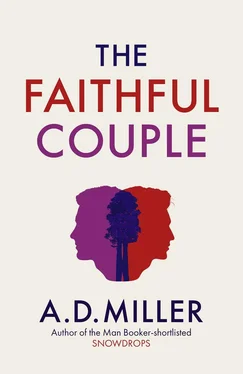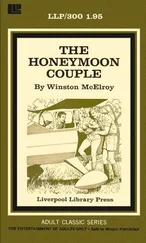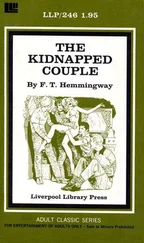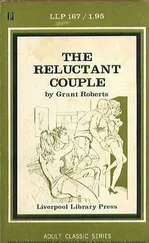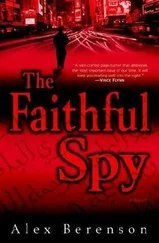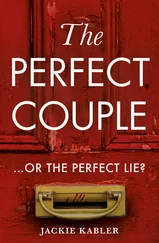‘I could go to a different school.’
Practicality had been a mistaken argument. Neil looked at Sam and saw that he was joking, though in fact the thought had crossed his mind: some sort of guardianship, he wasn’t sure of the small print, he would have to find a lawyer.
She was fine. Almost certainly, she was fine.
Sam’s weekends in Harrow had become long and frequent enough for his teacher to have written a series of escalating warnings to Dan, and perhaps, Neil feared, preliminary letters to social services. If he had his way, these getaways would end: he thought Brian should sell the house and move into something smaller. He could use the difference to help pay the saintly Filipinos who cared for him on an increasingly full-time basis, an entourage that, for the moment, Neil was quietly subsidising. He had driven up to discuss this plan, but Brian wouldn’t consider it. His father wanted to die in that house, Neil could see, die there with his dead wife on the mantelpiece, and he seemed stoically indifferent as to when this consummation came to pass.
Neil had changed tack — Fuck it, I’ll give it a whirl — and told him that the house had been a fine place to grow up. That his had been a happy childhood, until the cancer. That he was grateful. His heart raced as he said those things. Brian said, ‘I think I might have left the deeds in the safe.’ The safe in the shop, he meant, which was someone else’s shop now, an ‘American’ nail bar, Neil thought.
Sam wanted fish and chips. ‘Or Chinese, if you fancy it. But, you know, fish and chips, if we can.’
‘You two can,’ Brian said.
‘ X-Factor in an hour,’ Sam said.
The moment on the climbing frame could have gone another way, as every moment could. The damage might have been real. If it were, and even if it were inflicted by someone else, or by nobody, and you were only a bystander, but all the same you let it happen, what would that mean? Neil’s mind returned to their first meeting with Farid. ‘Everybody wants to think that, don’t they? That they love their family as much as they can.’ That was what Neil had said, more or less, though Christ knew he had been bluffing.
Her sob had sounded ventriloquised, as if it came from another, older person or a different species. The Charlie Brown T-shirt.
‘God almighty,’ Brian said, ‘they sound like cats being strangled, the idiots on that programme. Why does everyone want to make bloody idiots of themselves these days?’
Jess didn’t get it. Neither, for twelve years, had Neil. He had dodged and downplayed their behaviour, and lied to himself, and later, when Adam confessed, fixed on what the cost might have been for him. Adam alone had got it, and in the end, with his pitiless Googling, he had made Neil understand, he and Sam between them. Neil saw California anew that afternoon, saw it in the round, including the pain that would have followed later.
The guilt ebbed his way, towing his anger back. Only now, Neil thought in the playground, did he begin to appreciate what Adam had made him do.
And your mother!
‘Right,’ Neil said to Sam. ‘Let’s go. Help your granddad.’
Neil squeezed the key fob, his recessed headlights blinked at him, and he walked around the corner to Adam’s road. These days he tended to park out of sight when he visited the Taylers, whether or not there was space nearby. Too much, somehow, for his car (a two-seater BMW, silvery grey, his choice, this time) to be visible through Adam’s window, squatting extravagantly in the street like a visiting potentate’s carriage. Likewise it would be uncouth to insist that Adam come to his new flat in Bayswater (Neil’s place, all his, not rented and not shared, almost no mortgage). He meant this deficit of hospitality as a kindness, as he hoped his friend could see. Admittedly a kindness that might look like coldness, and in truth could gratify Neil as either. Though in point of fact he was hardly ever in his flat himself, between his meetings with clients in New York and Monaco, Abu Dhabi and Geneva, his client dinners in the stratum of London restaurants where only the host’s menu lists the prices, and his weekend summonses to clients’ mansions and estates. There was rarely anything in the fridge for him, or anyone else, to consume, besides half-drunk bottles of wine, fungal milk and Sam’s pizza leftovers.
‘Excuse me,’ Neil said.
A woman was obstructing Adam’s gateway; from where Neil stood she was framed by the white pointing that arced around the suburban front door. Elderly, grey-white hair in a bun, wearing an off-beige mackintosh even though the evening was warm. She was texting, leaning backwards to compensate for her long-sightedness, one bony, fastidious finger poking the keypad in regular, intrepid jabs.
‘Not at all, dear,’ she said, pressing her back to the gatepost as he passed.
The woman looked up at the building as if she were casing it. Neil considered challenging her until he remembered the For Sale board that was affixed to the fence. He skipped up the steps and rang the bell.
Claire’s meet-and-greet smile flattened when she saw him. She peered around his shoulder as if she were expecting someone else.
‘Come in,’ she said, a few seconds slower than she should have. ‘’Fraid he’s not back yet. Something about illegal immigrants, the usual.’ Compensating, she added, ‘Drink? Don’t think he’ll be long.’
They had known each other for twelve years, but Neil couldn’t say that he and Claire were friends. Colleagues, in a way: mutually tolerant and intermittently cooperative, but dimly rivalrous and not entirely trusting. From the beginning he had wanted to like her, for convenience’s sake, and he had tried to like her, but at the same time there had always been a tempting, grubbily competitive satisfaction to be had in not liking her. They had rarely been alone together, awkward intervals when Adam fetched a drink or scolded or consoled a child, and never for very long.
‘Kids not here?’
‘With my mum. There’s a fairground on the common. I’m showing the flat today — can’t really do it when they’re rampaging.’ She gave a jokeless, strained laugh.
Neil thought about making his excuses. A client’s pet charity was throwing a reception in Park Lane, clean water for India, he ought really to be there, making a donation on Rutland’s behalf, pretending to socialise while discreetly foisting his business cards on the high-rolling do-gooders. He was missing it only because he had already postponed this evening twice: dinner for Adam’s birthday, the only birthday, besides Sam’s, that Neil reliably remembered and marked. His treat; he would be permitted that minor generosity, at least. He had been looking forward to the largesse.
The doorbell sounded before he managed to decide. Neil was closest; he pivoted and opened the door. The texting old woman bustled through it and past him. He closed the door behind her. That had been his first chance to leave, he saw afterwards.
‘I thought it must be you,’ the woman said. ‘Patricia.’ She extended a hand and Neil shook it. ‘Is this it? Of course it is, what am I saying? And this is your wife?’ Claire tried to correct her but Patricia wouldn’t be diverted. ‘The estate agent couldn’t make it, his message said to come anyway, I hope you don’t mind. Start at the top?’
She helped herself to the stairs.
‘Viewing,’ Claire stage-whispered to Neil. ‘Sorry.’
She turned and followed. Neil weighed his options. If he left now, or stayed where he was, Patricia might be offended. He went upstairs to join them.
‘Children’s bedroom?’ Patricia asked. ‘How old are they?’
‘Six and four,’ Claire said.
Читать дальше
